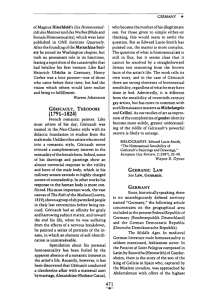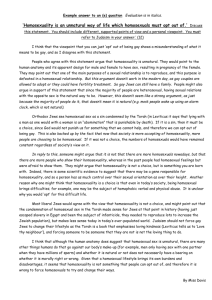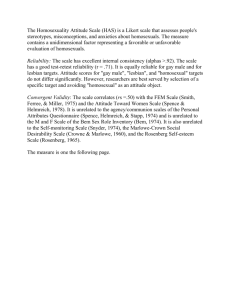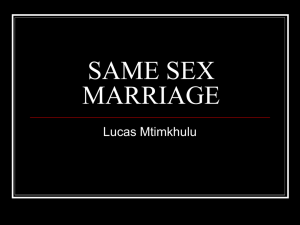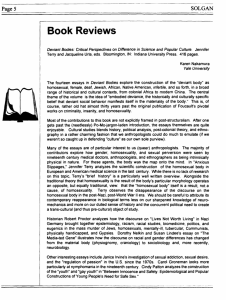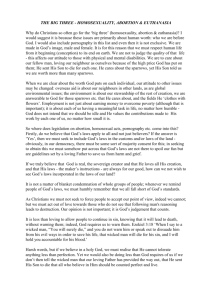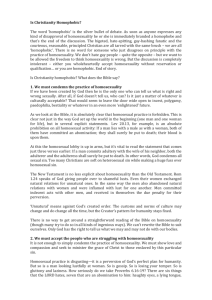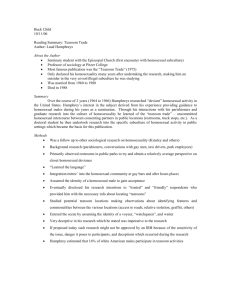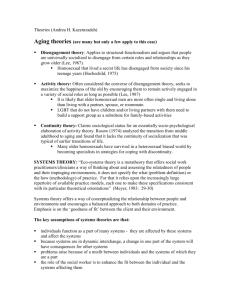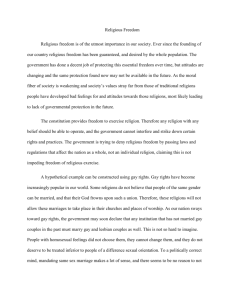Dispelling the Myth Seminar
advertisement
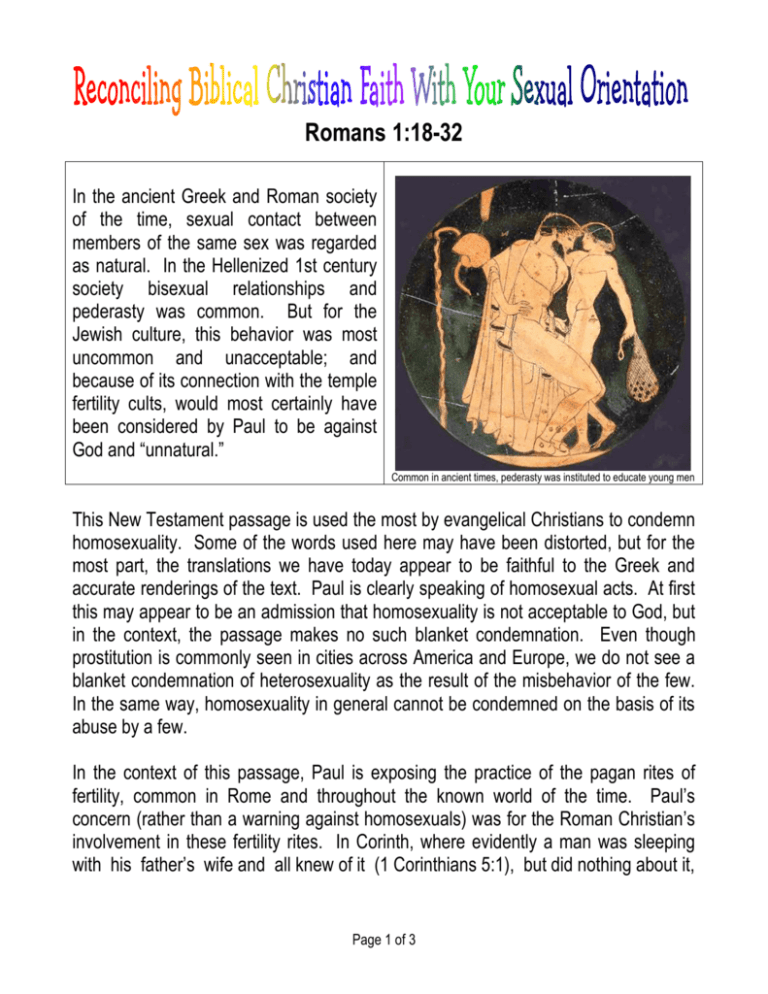
Romans 1:18-32 In the ancient Greek and Roman society of the time, sexual contact between members of the same sex was regarded as natural. In the Hellenized 1st century society bisexual relationships and pederasty was common. But for the Jewish culture, this behavior was most uncommon and unacceptable; and because of its connection with the temple fertility cults, would most certainly have been considered by Paul to be against God and “unnatural.” Common in ancient times, pederasty was instituted to educate young men This New Testament passage is used the most by evangelical Christians to condemn homosexuality. Some of the words used here may have been distorted, but for the most part, the translations we have today appear to be faithful to the Greek and accurate renderings of the text. Paul is clearly speaking of homosexual acts. At first this may appear to be an admission that homosexuality is not acceptable to God, but in the context, the passage makes no such blanket condemnation. Even though prostitution is commonly seen in cities across America and Europe, we do not see a blanket condemnation of heterosexuality as the result of the misbehavior of the few. In the same way, homosexuality in general cannot be condemned on the basis of its abuse by a few. In the context of this passage, Paul is exposing the practice of the pagan rites of fertility, common in Rome and throughout the known world of the time. Paul’s concern (rather than a warning against homosexuals) was for the Roman Christian’s involvement in these fertility rites. In Corinth, where evidently a man was sleeping with his father’s wife and all knew of it (1 Corinthians 5:1), but did nothing about it, Page 1 of 3 Romans 1:18-32 Temple of Venus in Rome Paul took authority, exposing him and requiring his expulsion. He must have had a similar concern that the Roman Gentile believers, who had formerly been actively involved in the temple cult fertility rites, might continue to do so. Rather than a blanket condemnation of homosexuality, this passage is a slam against the hypocritical Christians who were themselves continuing to participate in the temple cult orgies. The participants were not predominantly homosexuals, but heterosexuals participating in homosexual acts. The people Paul is describing, who are involved in this temple cult worship, have some very distinct characteristics. First, they have rejected the knowledge of God (verse 20). Second, they do not glorify God or acknowledge his provision for them and their hearts and minds have become “darkened” (verse 21). Third, they have exchanged the glory of God for idolatry (verses 22-23). Fourth, they degrade one another through promiscuous sexual acts (verse 24). Fifth, they have believed lies, serving created things and not the Creator (verse 25). Sixth, they have exchanged their own “natural” sexuality for the “unnatural” (verses 26-27). Seventh, they have depraved minds that promote unbridled lawlessness (verses 28-32). These are very specific characteristics and while there may be many who fit these descriptions today, this does not describe the modern mainstream homosexual community and for sure does not even come close in describing those gay men and women who are believers, serving the Lord. The problem here is that many churchgoers cannot see the difference between what Paul is describing here and committed loving relationships. There is a big difference. In verse 26 and 27, translated to our English word “natural” is the Greek word phusikos (#5446) which means intrinsic; that which is born or inherent. It does not describe something that is necessarily universally true, but intrinsic for the individual. What is intrinsic for one person is not necessarily intrinsic for the next person. For example, one person may be intrinsically tall (as height runs in his/her family) while another person may be intrinsically short. Both are intrinsically influenced, but not in Page 2 of 3 Romans 1:18-32 the same way. Both are “natural” in their appearance but with opposite results. Those in this passage, involved in the fertility rites, were giving themselves over to do those things that were not natural (intrinsic) to themselves. Even the English word “nature” means that which is inborn or inherent to the individual. The assumption here which causes so much confusion is the belief that Paul was saying that “natural” refers to the heterosexual persuasion; that all humans are naturally heterosexual from birth. This assumption, based on the evidence of experience does not hold true. Surveys on the incidence of a homosexual orientation in identical twins was done years ago at Johns-Hopkins University. In all cases where one of the twins was homosexual, the other twin was also. More recently, in the July 26, 1993 issue of Time Magazine, the Science Editor describes recent findings that lean toward a genetic explanation for homosexuality. “This new work and the studies of the twins are two lines of evidence pointing in the same direction. But the DNA evidence is much stronger than the twins study”, according to Simon LeVay whose research on the human brain differences is widely accepted. Science is progressively confirming what many gay men and women have known all along, they were created that way. When (and if) science finishes its work and proves genetic rationale for the incidence of homosexuality, this will not end discrimination. Much like racial prejudice, people will need to redefine their understanding of homosexuality to end the revulsion and hatred our culture has generated toward the gay community. Christians should realize that they have a responsibility to end this war against this segment of humanity and proclaim God’s love and acceptance rather than his rejection of anyone. And Christians who happen also to be gay must set an example of integrity as a demonstration of the redemptive work of God in the gay community. This example is for Christians and non-Christians, gays and straights; to be a light in the darkness of prejudice and hate. Page 3 of 3
